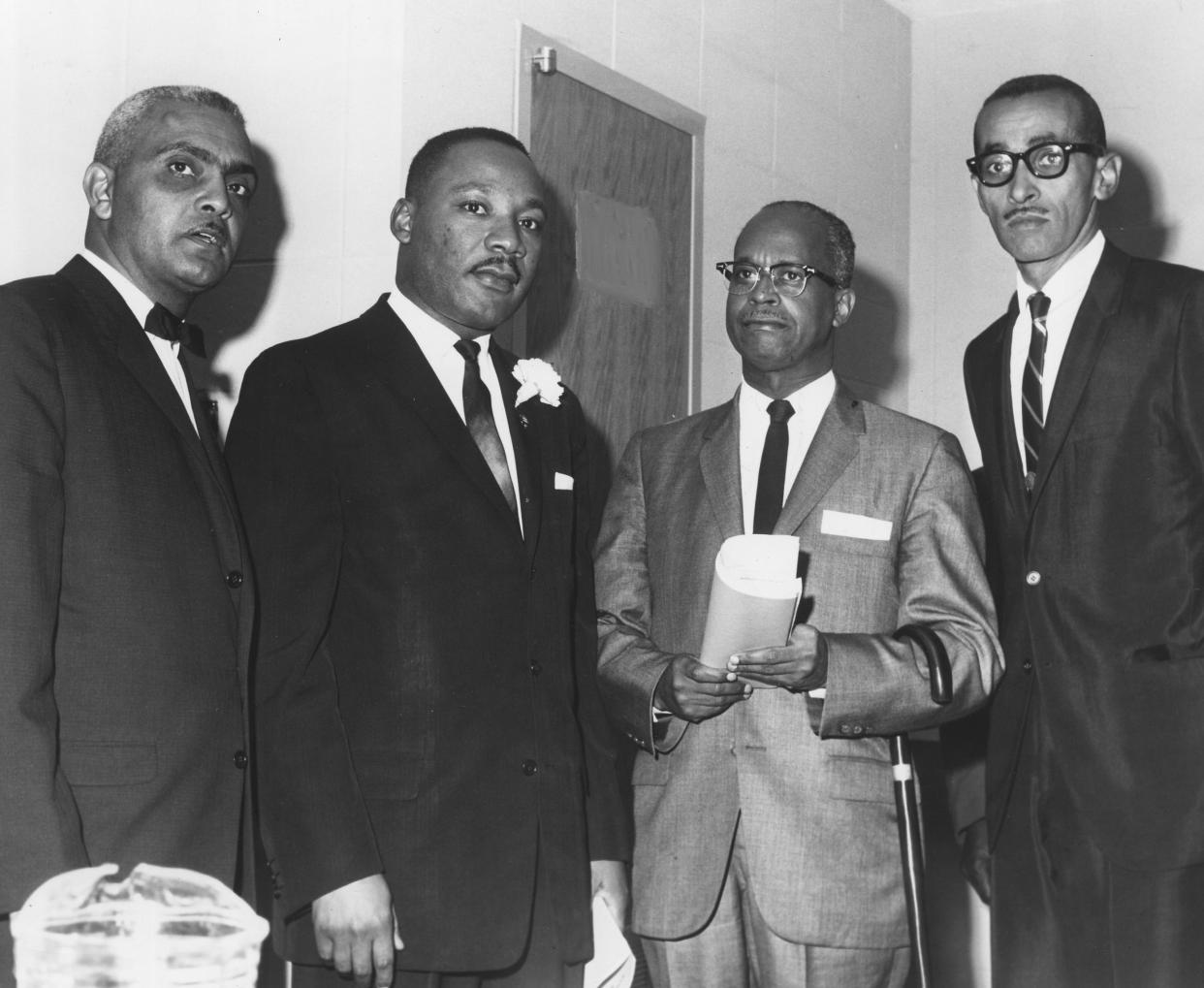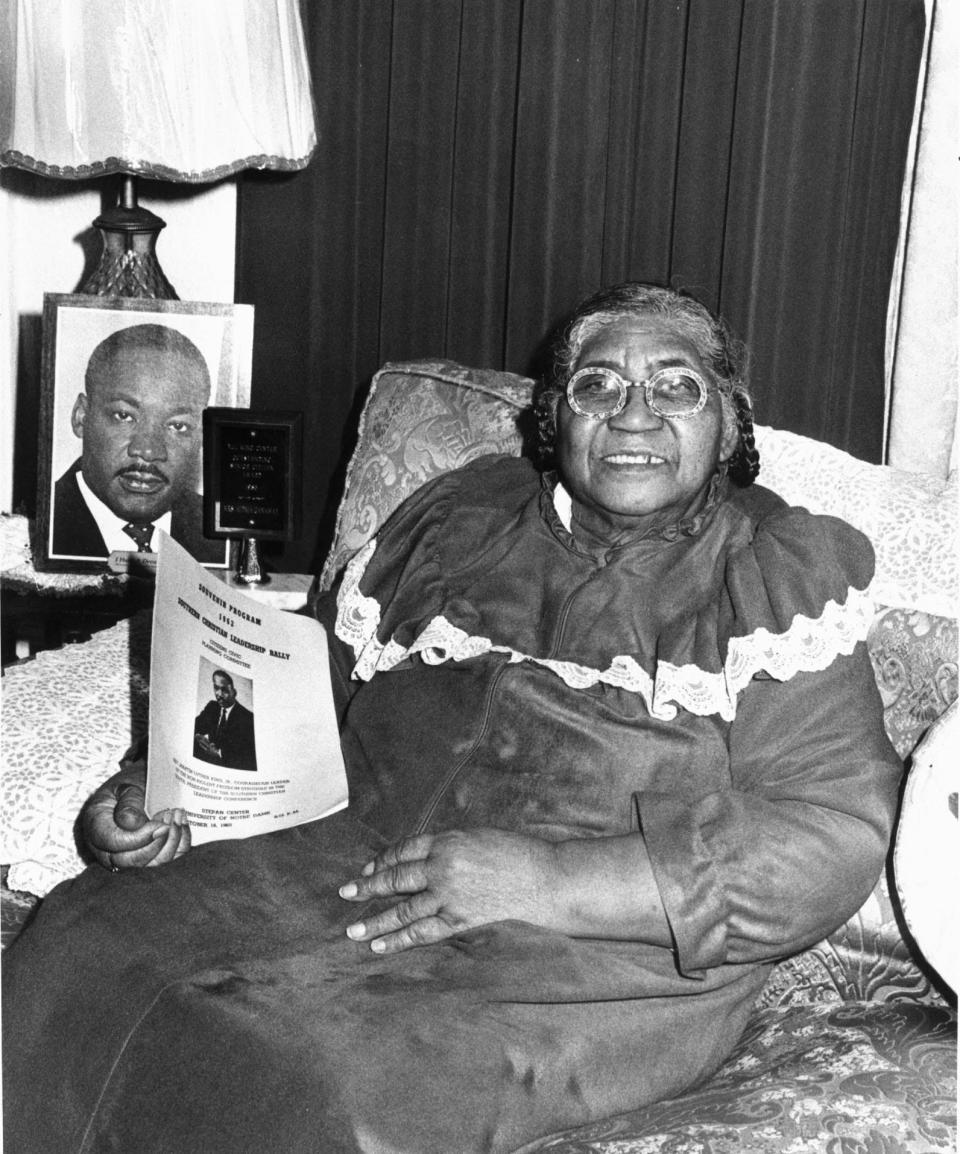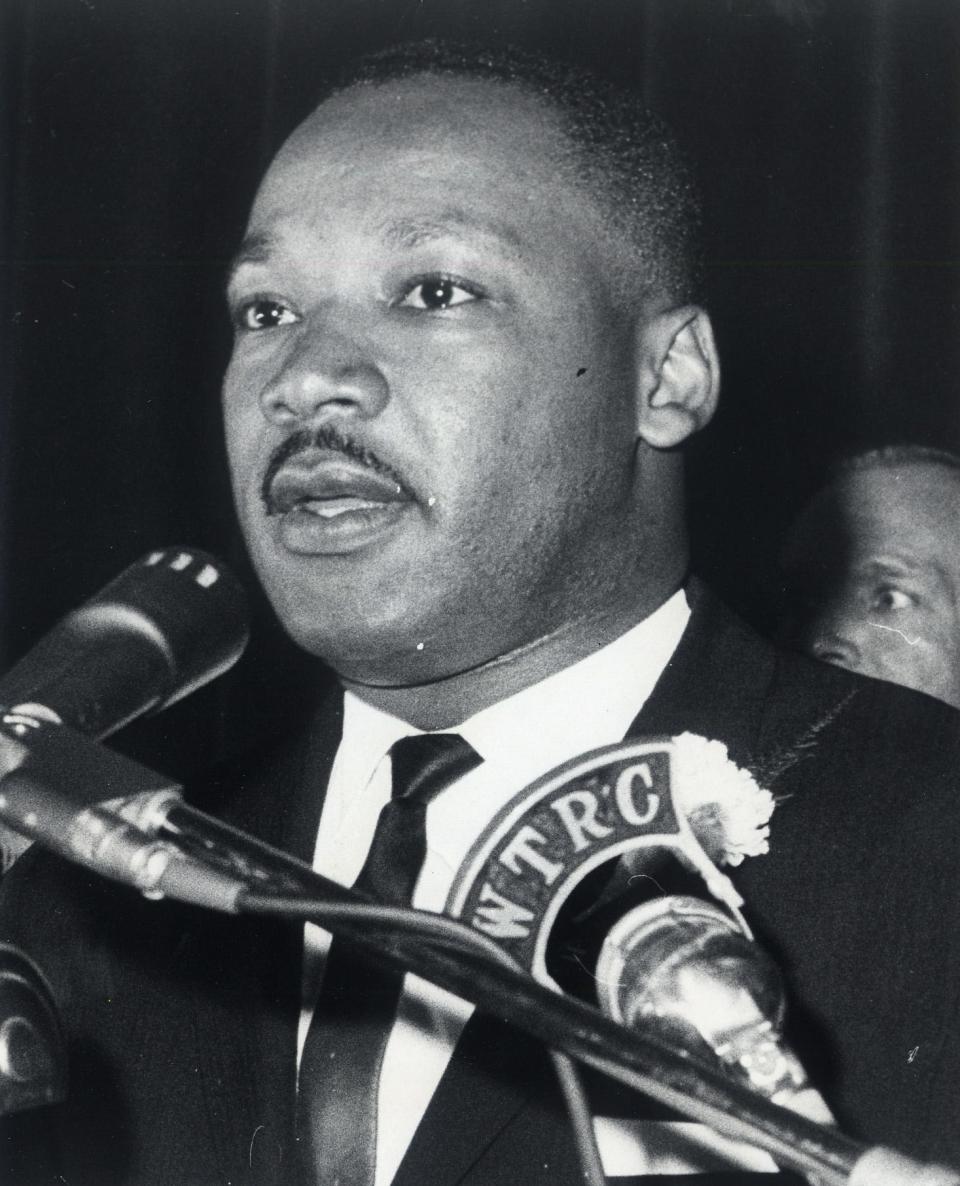Remembering Martin Luther King in South Bend, a city he visited in 1963 to speak here

- Oops!Something went wrong.Please try again later.
- Oops!Something went wrong.Please try again later.
SOUTH BEND — Events both local and nationwide Monday will mark the legacy of civil rights icon the Rev. Martin Luther King Jr.
Just over 60 years ago, King himself came to South Bend to deliver his message of human rights and to raise money to fight for racial justice. King spoke at the Stepan Center on the University of Notre Dame campus on Oct. 18, 1963.
Too cold: MLK march canceled, but program goes on indoors. Thanks to frigid temperatures.
South Bend resident and NAACP member Alphia Ganaway famously wrote a letter to King, asking him to come speak in South Bend, because Black residents here faced many of the same challenges as those in the South.

When King accepted her invitation, she immediately sought help from Dr. Roland Chamblee to organize the event, he told The Tribune in 2002. With only a month to plan, the pair met the next day. Ganaway also asked for planning help from her daughter, Norma Ganaway, and S. Lawrence "Speed" Webb, a jazz musician and mortician who was active in Democratic politics.
Chamblee called then-Notre Dame President the Rev. Theodore M. Hesburgh about whether the university would host the event. Hesburgh, who served on the United States Commission for Civil Rights, agreed to make the Stepan Center available.

Coverage of King's speech at the time describes the reverend's reference to slavery starting in what would be the United States in 1619, before the arrival of the Pilgrims.
King spoke that day of the critical importance of helping struggling people everywhere, across the country and the planet. "Whatever affects one directly affects all indirectly," he was quoted as saying. "No man is an island." Until humanity accepted that responsibility for each other, he said, the United States would never be a great nation and the world would never be a great world.
King also told his South Bend audience that time alone would not solve segregation and racial injustice because "people of ill will have used time more effectively than those of good will," so good people had to actively work to end injustice.
King's speech also echoed Alphia Ganaway's assertion racism was just as big a problem in the North as the South. The main difference, he said, was northern racism was subtler, less openly displayed.
Housing discrimination: South Bend Civic revives Better Homes' story with play it commissioned
Finally, King asserted the best action people could take in the fight for human rights was nonviolent, direct action. It is the philosophy he is perhaps most famous for. Advocating that injustice be met with direct forms of protest but not violence.
That legacy and message has endured now more than 50 years after King's assassination, and it will be celebrated again on Monday in South Bend, just as it was when he spoke here in 1963.
This article originally appeared on South Bend Tribune: Martin Luther King spoke at Notre Dame about racism and civil rights

